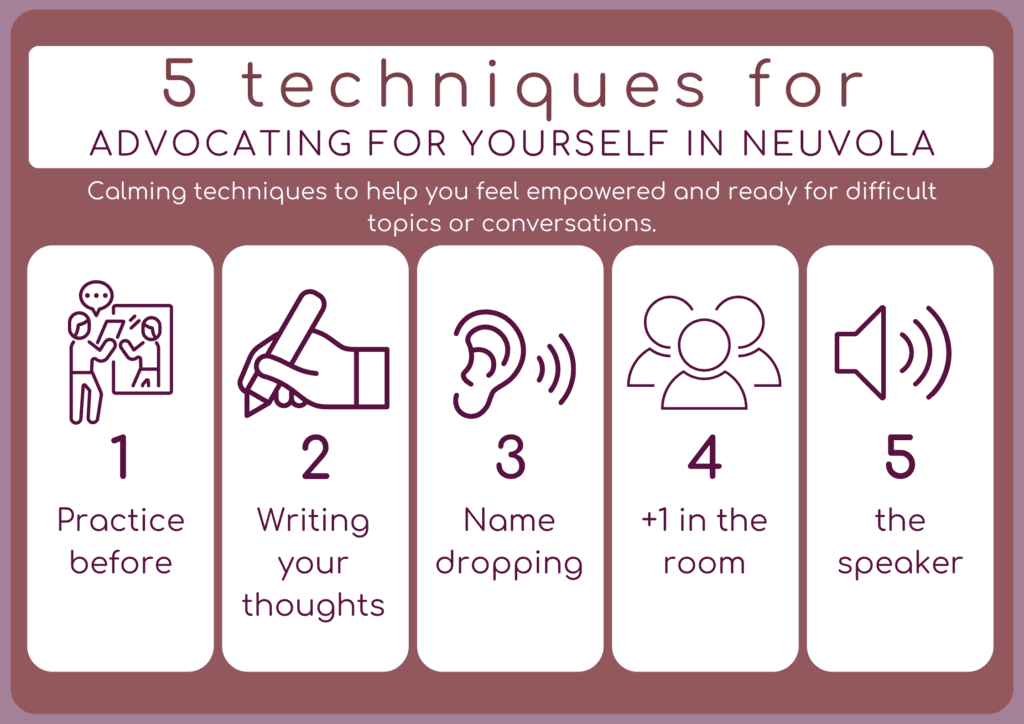Finland’s neuvola system is a wonderful support for pregnancy, but each visit can feel different depending on the professional’s approach. To make sure your preferences are understood and respected, here are five strategies to help you confidently advocate for yourself during neuvola visits.
When Do I Need to Advocate for Myself at a Neuvola Visit?
You may feel the need to advocate for yourself when you feel your preferences or values aren’t fully considered, or when you have specific questions or requests. Advocating for yourself is especially helpful in moments of miscommunication, disagreements about care options, or if you’re seeking alternative birthing or parenting practices that differ from common neuvola guidance.
As a birth and postpartum doula, part of what I do is to train my families on how to ask the right questions, explain your preferences respectfully and advocate for updated, science-based resources in our neuvola visits.
Let’s jump into the five strategies to confidently navigate your neuvola visits. You can also use these during birth and postpartum check-ups!

1. Practice Before Your Next Neuvola Session
Some topics may feel a bit sensitive or even overwhelming to discuss openly, so practicing beforehand can help you stay clear and calm. Whether it’s about birth plans, parenting choices, or cultural differences, running through your thoughts in advance can help you find the right words and sound confident.
For effective practice:
- Prepare a short list of topics or keywords you want to bring up.
- Say the words out loud to yourself or with someone you trust.
- If practicing alone, try using a mirror to rehearse non-verbal cues, like maintaining eye contact or a relaxed posture.
2. Write Down Your Thoughts
Writing out your thoughts can be incredibly helpful. Take a few minutes before each visit to jot down any key topics, questions, or requests you want to address. A physical list can act as a reminder and helps keep the session organized.
Suggested topics for your list:
- Essential topics or questions for your neuvola nurse.
- Specific concerns about your care, like nutrition, mental health, or exercise.
- Requests for available support options for mental or physical well-being.
- Credentials you’d like your nurse to have in specialized areas (e.g., prenatal nutrition, mental health support).
3. Name-Dropping & “My X Wants to Know”
Back up your ideas by referencing trusted sources or even loved ones. This technique can make your case feel more valid and less like a personal opinion. For instance, you could say:
“I read a study from [Well-Known Researcher/Institute] supporting ginger as a natural remedy for nausea in pregnancy. I’d like to continue using it as it’s helping me and it seems to be safe.”
If it feels awkward to use formal references, try the “My X wants to know” strategy. This could be as simple as:
“My partner wants to know what options we have for additional postnatal support after a home birth.”
4. Bring a Support Person to Your Neuvola Visit
It may surprise you, but research shows that conversations with healthcare professionals tend to shift when someone else is present in the room. Having a partner, friend, or family member with you not only provides moral support but also ensures there’s someone else listening in.
In Finland’s neuvola system, cultural differences and language barriers may sometimes lead to misunderstandings. While most neuvola professionals are respectful, some cases of unconscious bias do arise. Having someone with you can serve as a subtle reminder of your rights to personalized, respectful care.
5. The Speaker Strategy
If your support person can’t join you physically, consider asking if they can be present on speakerphone. This can be a great way to involve the other parent or a close family member who can’t attend in person. Just ensure you discuss this with your neuvola nurse ahead of time to make sure it’s okay.
When using this strategy, it can help to:
- Decide in advance if they will ask questions or help redirect the conversation if needed.
- Brief them on the main topics you’d like to cover so they can help keep the discussion on track.
Advocating for yourself during neuvola visits can make a meaningful difference in your pregnancy journey. Remember, it’s your right to feel understood and supported as you go through this exciting, sometimes challenging time. With a bit of preparation and these techniques, you’ll feel ready to handle whatever comes your way—so you can focus on what matters most: a happy, healthy pregnancy.
Part of my training as doula to my clients includes self-advocacy techniques. Assertivity and non-violent communication are the base we practice together. Are you looking for this kind of emotional, informational and compassionate company for your pregnancy and birth? Check my doula services.
